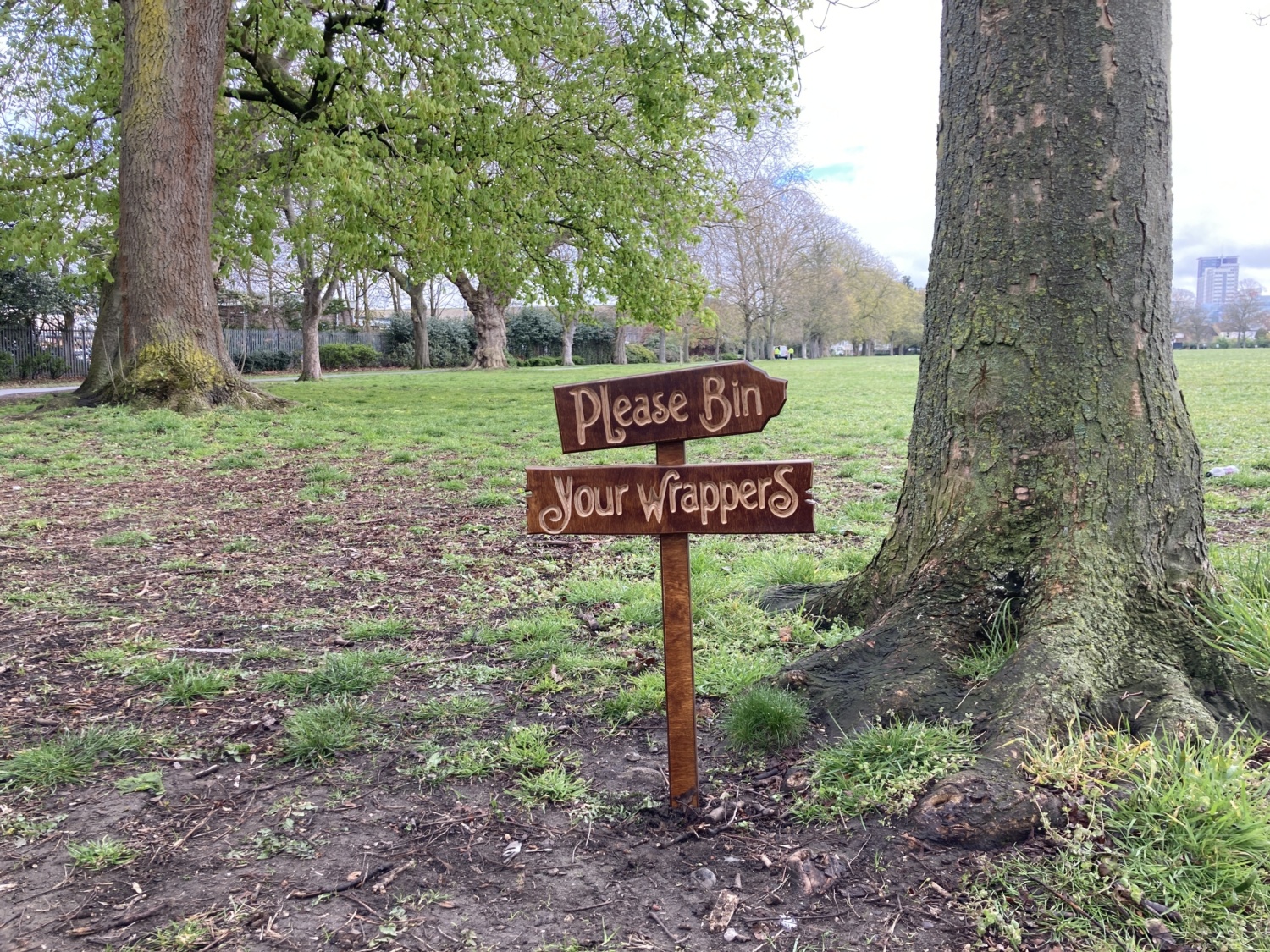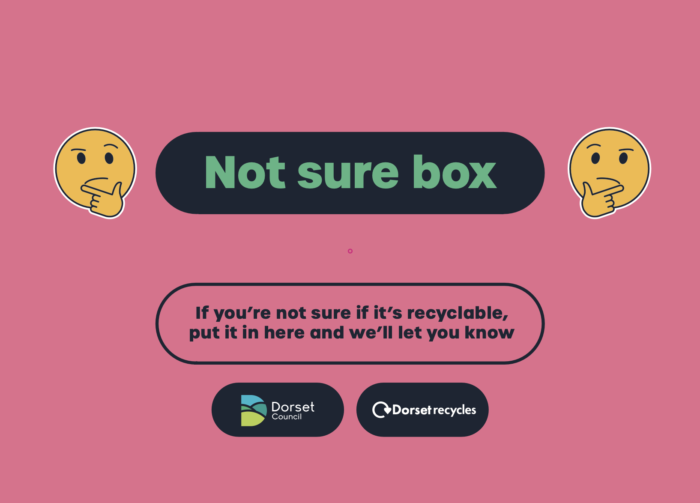
Littering has been a hot topic this year, with increasing concern for the environment coinciding with the covid-19 pandemic and a number of high profile littering ‘incidents’ around the country since we first went into lockdown in March. All too often, the littering conversation is framed around two opposed groups: one camp who see themselves as people who would never, ever litter, and another camp who are seen, in turn, as irredeemably lazy and selfish. As satisfying as knee-jerk rage against litterers may feel, we’ve found in our own work that littering is made up of a complex and nuanced suite of behaviours, and often doesn’t feel clear cut to those doing it. Here we’ll reflect on some of the insights we’ve uncovered when developing interventions that reduce littering in the real world — a world not made up of two neat groups of litterers and would-never-litterers.
Understanding Littering
At Behaviour Change, all our projects begin with an ‘insight’ phase. It’s all too easy to come to new topics with prejudices about who does a behaviour and why, and this is very much the case with littering. Take chewing gum, for example — we’ve been working with Mars Wrigley on this for 5 years now, and one of the most valuable learnings from our early qualitative research was that a range of ‘ordinary’ people will litter it in certain circumstances — challenging a widely held perception that there’s a hardcore ‘antisocial minority’ to blame (teenage boys, for example). While the majority of people never litter gum, this insight allowed us to cut through stereotypes and think in terms of situations that trigger littering rather than people who litter persistently. The reality of littering is so much more nuanced than offenders being consistently lazy or selfish. This supports previous research from Brook Lyndhurst for Zero Waste Scotland, which concluded we’d be better off thinking about ‘littering incidents’ rather than ‘litterers’.
Littering by situation
One reason that littering may seem genuinely acceptable to someone in a given situation is because their understanding of what littering is simply doesn’t include the thing they’re just about to do. You may never have got up from a picnic and left your rubbish strewn all over the park — but we’re willing to bet you’ve left a cup on a train table or under a seat in the cinema. In our last newsletter, we wrote about Covid-19 lockdown rules and how even people who see themselves as generally diligent and compliant are nonetheless often willing to bend and interpret the rules when it suits their own situation. There’s an analogy here with littering, and the way we can be outraged about others’ lapses while often making our own rules based on the situation. One example of this is the evidence that littering isn’t necessarily seen as littering when it happens in an area which is regularly cleaned, like a train station or busy town centre. We call this ‘posh’ littering or ‘careful’ littering, and one in four Brits admit to it. To the litterer, it doesn’t really count if you leave it on a shelf or table where, presumably, it’ll soon be whisked away by a cleaner.
Littering by item
As well as occasionally bending the ‘rules’ when it comes to littering situations, behaviour and attitudes also vary widely between different items. This is another reason why labelling all litterers the same doesn’t get us very far in changing actual behaviour. In the UK, for example, the most commonly-found litter items by number are cigarette butts and scraps of confectionery packaging. One explanation for this is that small, flimsy pieces of litter, like a papery butt or the corner you might rip off a Snickers bar, are perceived as harmless, inconspicuous and even biodegradable, so it’s easy to tell yourself that dropping one in the moment isn’t so bad. Accidentally-on-purpose letting a scrap like that fall out of your hand barely feels like a crime compared to more obviously harmful waste like broken glass, dog mess or needles, but the long-term, far-off consequence the litterer doesn’t see is that these flimsy packaging scraps add up to a majority of litter items found on UK streets and beaches. In 2020, personal protective items like masks and gloves are widespread in the UK for the first time, and seeing these discarded (often in natural environments) has sadly become commonplace — with one organisation suggesting that there could soon be more masks than jellyfish in the Mediterranean.
There's often a pro-social motivation involved in littering
Surprising though it may seem, there is often a level of ‘pro-social’ motivation involved in littering, or at least an attempt to litter in a way that causes the least harm to others. Objectively, littering is never the ‘pro-social’ choice, but when we interviewed people who admitted to occasionally littering chewing gum in specific settings, we found that shame and social stigma were big factors in the way they went about it. While leaving a glob of chewed-up gum under a train table may seem disgusting, the rationale of those leaving it can be that they had nowhere else to put it, and that it’s better than throwing it on the floor — at least that way, no one is going to step in it (so their reasoning goes). You can see this pro-social motivation at play with some other litter types, like the ‘careful’ littering we mentioned above.
Ultimately, the majority of people who litter don’t do it all the time, and there’s a substantial ‘situational’ element which may be especially true during lockdown, as well as behaviour differing very widely between different items. There are Covid-specific factors at play this year, too: more socialising outside, more disposable goods at picnics, a heightened ‘ick factor’ around handling used items, and social cues like being out with friends rather than parents or a first date. The good news is that since most people aren’t ‘hardcore’ litterers, and are at least somewhat influenced by social and situational cues, there are plenty of opportunities for interventions at various levels to begin tackling the ‘low hanging fruits’ of littering reduction.
We've been working with Mars Wrigley for 5+ years on eradicating littered gum in the UK, and we’ve now launched a national toolkit of signage based on extensive research and pilots. If you’re interested in implementing our signage, drop us an email at marswrigley@behaviourchange.org.uk.
Share
RELATED ARTICLES
Case study

The sticky issue of night-time economy gum littering
Tasha shares how our recent work on gum litter took us to the centre of Liverpool’s nightlife scene
20/08/25
Read moreBehavioural science

Got the hang of your recycling? Think again.
With big changes coming to recycling, Rob lays down what's needed for them to succeed
01/07/25
Read moreSustainability

Wishcycled recently?
Our innovative intervention to tackle one of the biggest barriers to recycling correctly
25/06/25
Read more